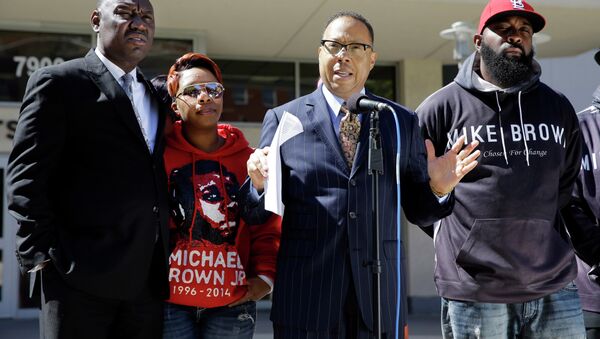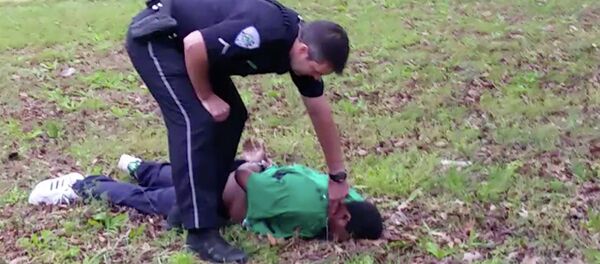The suit cites a "pattern and practice of using unreasonable and excessive force," and police practices that "often escalate encounters" with residents, particularly African-Americans like 18-year-old Brown.
In addition to the city of Ferguson, the lawsuit names former Officer Darren Wilson, the white cop who shot Brown and whose actions were ruled justified, and former Police Chief Thomas Jackson as defendants. Wilson resigned in November after a grand jury declined to indict him, and Jackson resigned in March following a scathing Justice Department civil rights report about his department.
— Jason Sickles (@jasonsickles) April 23, 2015
Attorneys Anthony Gray and Benjamin Crump addressed reporters after the suit was filed in St. Louis, with Brown's parents present but remaining silent. The filing was expected as the family announced last month they would pursue a civil suit once the Department of Justice concluded it could not pursue Wilson on civil rights charges.
According to the suit, Officer Wilson "unjustifiably shot and killed (Brown), using an unnecessary and unreasonable amount (of) force in violation of (Brown's) constitutionally guaranteed right to life."
The suit also alleges various instances of mishandling evidence and otherwise compromising the integrity of the investigation. In particular it accuses Wilson of "destroying evidence" when he washed blood off his hands and in bagging the gun he shot Brown with.
Gray claimed that, though the evidence in the suit remains the same, "the presentation of that evidence" will be the key to their case, disputing some central elements of the original shooting investigation and subsequent proceedings.
The lawsuit's version of events does not, for example, include Wilson's claim that there was a struggle between himself and Brown over the officer's weapon. Gray also said they will address changes in Wilson's story over time: "It's been refined; it's been perfected."
The burden of proof in a civil trial is less than for criminal proceedings; instead of proving a case "beyond a reasonable doubt", plaintiffs have to prove "a preponderance of evidence," which the Brown family's attorneys were confident about.
"There were other alternatives available to (Officer Wilson)," Gray said explaining the essence of the Brown family's case. "He did not have to kill Michael Brown."




